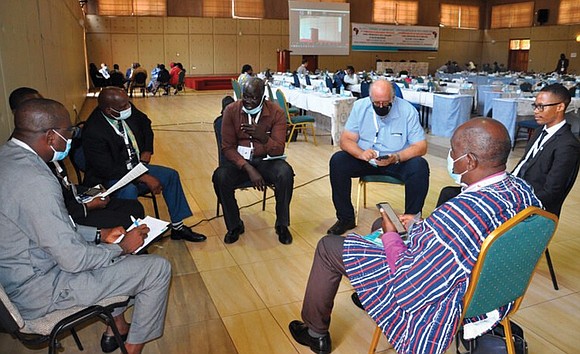African faith leaders combat fake cures for COVID-19
Religion News Service | 12/9/2021, 6 p.m.

NAIROBI, Kenya - When some African church pastors ordered their followers to eat grass or gulp petrol or even drink poison-laced water, their congregations have obeyed the instructions, thinking the practices would bring them closer to God.
Many other pastors take their wellness advice a notch higher, claiming to heal conditions such as disability and barrenness and diseases such as HIV and AIDS, and, more recently, coronavirus. It’s not unheard of for pastors to hold their congregations spellbound as they promise to bring the dead back to life.
In recent years the All Africa Conference of Churches, an umbrella group for several Protestant denominations on the continent, has moved to combat theological claims that harm Christians, holding a series of symposiums to educate clergy and unify their churches against faith healing and other practices.
“All these pronunciations, fake testimonies and things like these are really destructive. They are not life-giving, but life frustrating,” said the Rev. Fidon Mwombeki, a Tanzanian Lutheran pastor who is the general secretary of the AACC.
Based in Nairobi, the AACC is the continent’s largest association of Protestant, Anglican, Orthodox and Indigenous churches and has a presence in 42 countries. It brings together churches, national councils of churches, theological and lay training institutions and other Christian organizations.
Since 2019, the group has organized three symposiums in which theologians, clerics and lay Christians have met to explore the subject of misinformation. Some of the themes tackled in the prior conferences include power and authority, wealth and poverty, government regulation of religious organizations, and health and healing.
“If we don’t pay attention, (misleading theologies) will undermine human dignity and put the lives of people at stake. You see in some churches the minister sending people out to eat grass. This is unacceptable,” said the Rev. Bosela Eale of the Democratic Republic of the Congo, AACC’s director of theology, interfaith relations and leadership, at the most recent symposium held in late November in Nairobi.
The theologians are warning against dangerous teachings and practices such as prosperity gospel; sexual abuses in demonic exorcism and blessing for fertility; the use of toxic substances and liquids in religious rites; and demanding huge sums of money for prayers and pastoral services, among others.
Religious observers say many of the worst abuses of theology come in faith healing.







